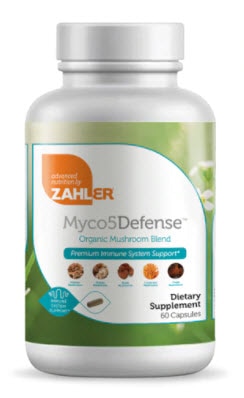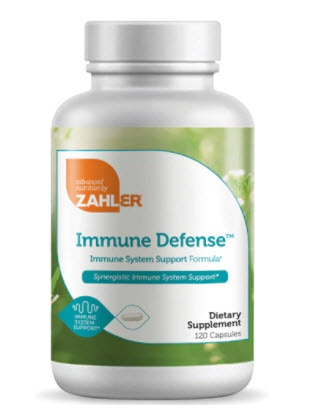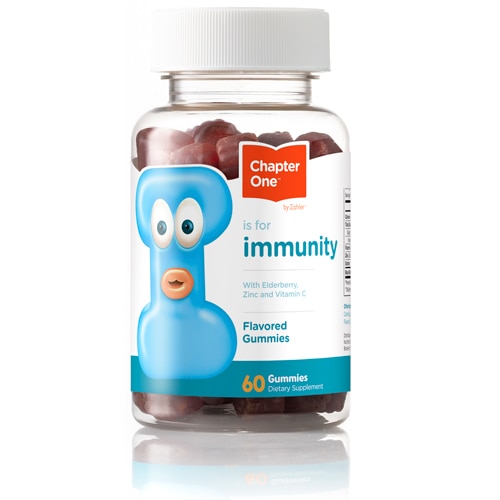Think of your
immune system as an app that's set to run in the background: crucial for your body's function, but slowing you down when it's not working well. The immune system consists of organs, cells and chemicals that fight off infection and illness and is one of the most complex systems in the body. Still, at least 80 illnesses are caused by problems with the immune system. Let's take a closer look at some of the signs and symptoms that your immune system isn't functioning optimally -- and what you can do to address the issues.

First, it's good to know that there is a relatively rare spectrum of conditions called
primary immunodeficiencies. These are inherited genetic conditions. However, it is possible for a perfectly normal immune system to become compromised and cause recurrent illness and infection. In both cases, there are things you can do to support and balance immune responses.
Weak immune system symptoms
1. Exhaustion
Did you know that feeling tired all the time can be a signal that your immune system is weak? Of course, if you don’t get enough sleep, you’ll find yourself yawning and feeling groggy all day. But what you may not realize is that not resting properly can affect how well your immune system functions. Tiredness can be your body’s way of alerting you that something is wrong. According to Dr. Nadia Hasan, a family doctor at Penn Medicine, your body tries to conserve energy to keep your immune system functioning somewhat, but that can leave you feeling depleted.
What can you do?
- Practice good sleep hygiene.
- Keep to a schedule with set sleep and wake-up times for weekdays and weekends.
2. Frequent colds
Most people come down with two to four colds every year. Usually, you’ll have symptoms for about seven days and then start to feel better.
[i] But if your immune system is down, you may struggle with more frequent colds and take longer to recover.
What can you do?
- Take hand-washing seriously. Wash with soap for 20 seconds each time you enter the house, before eating and after using the bathroom.
- Add an immune-support supplement to your regimen.
3. Recurring infections
The American Academy of Allergy Asthma & Immunology reports that if an adult experiences more than four ear infections, two bouts of pneumonia, chronic sinusitis, or otherwise needs more than two rounds of antibiotics in one year, their body may be trying to tell them that their immune system needs support.
[ii]
What can you do?
- Go to your primary care practitioner for an annual physical to catch problems before they become a serious concern.
- Eat and sleep well.
- Consider regular use of immune system supplements.
4. Wounds won’t heal
One of the jobs of your immune system cells is to help heal wounds when you get a cut, scrape or burn. Your blood cells carry important nutrients to the wound site and help promote growth of new skin. But if your immune system is sluggish, your skin will have a hard time regenerating.
What can you do?
- Eat balanced meals to replenish nutritional deficiency.
- Use vitamin-based skincare products to promote healing.
5. Sickness after stressful events
Have you ever experienced a crash after completing a major project? Or sickness after emotional upheaval? Well, that’s your immune system letting you know it’s been exploited. Stress can decrease white blood cell count (the cells that usually help ward off infection). The American Psychological Association reports that long-term or
chronic stress can weaken the immune system’s ability to respond to triggers.
[iii]
What can you do?
6. Digestive dilemmas
Immune system health depends on the health of your gut flora. When intestinal bacteria are balanced, your immune system is well supported and can function adequately. If you experience frequent diarrhea, constipation or gas often, it may be a sign that your immune system is not up to par.
What can you do?
- Eat balanced meals and hydrate well to keep your digestive system working properly.
How to improve immune system health
So what can you do when you’re feeling under the weather? Better yet, how can you keep your immune system sunny at all times? Eating well, sleeping enough and exercising often are important first steps. But it may be beneficial to use
nutritional supplements to help keep your immune system healthy and give it extra support where your diet may be lacking.
Vitamin C has its spot in the sunlight as an immune-supportive vitamin, for good reason. It’s an antioxidant which may be beneficial for overall health, cardiovascular health and normal immune responses. Try PureWay C or Junior C from Advanced Nutrition by Zahler.
†
For more targeted immune support and to support cellular protection, try Myco5Defense, a rich blend of five organic mushrooms. The modest and humble mushroom can provide marvelous nutrition benefits and may be helpful for those facing immune challenges.
†
Looking for everyday sypport? Immune Defense is an advanced formula that contains a powerful combination of immune nutrients such as olive leaf extract, pine bark extract, bee propolis and more. It is highly beneficial in supporting the overall health and function of the immune system.
†
†These statements have not been approved by the Food and Drug Administration. These products are not intended to diagnose, treat, cure or prevent disease.
Featured products:




 First, it's good to know that there is a relatively rare spectrum of conditions called primary immunodeficiencies. These are inherited genetic conditions. However, it is possible for a perfectly normal immune system to become compromised and cause recurrent illness and infection. In both cases, there are things you can do to support and balance immune responses.
First, it's good to know that there is a relatively rare spectrum of conditions called primary immunodeficiencies. These are inherited genetic conditions. However, it is possible for a perfectly normal immune system to become compromised and cause recurrent illness and infection. In both cases, there are things you can do to support and balance immune responses.







